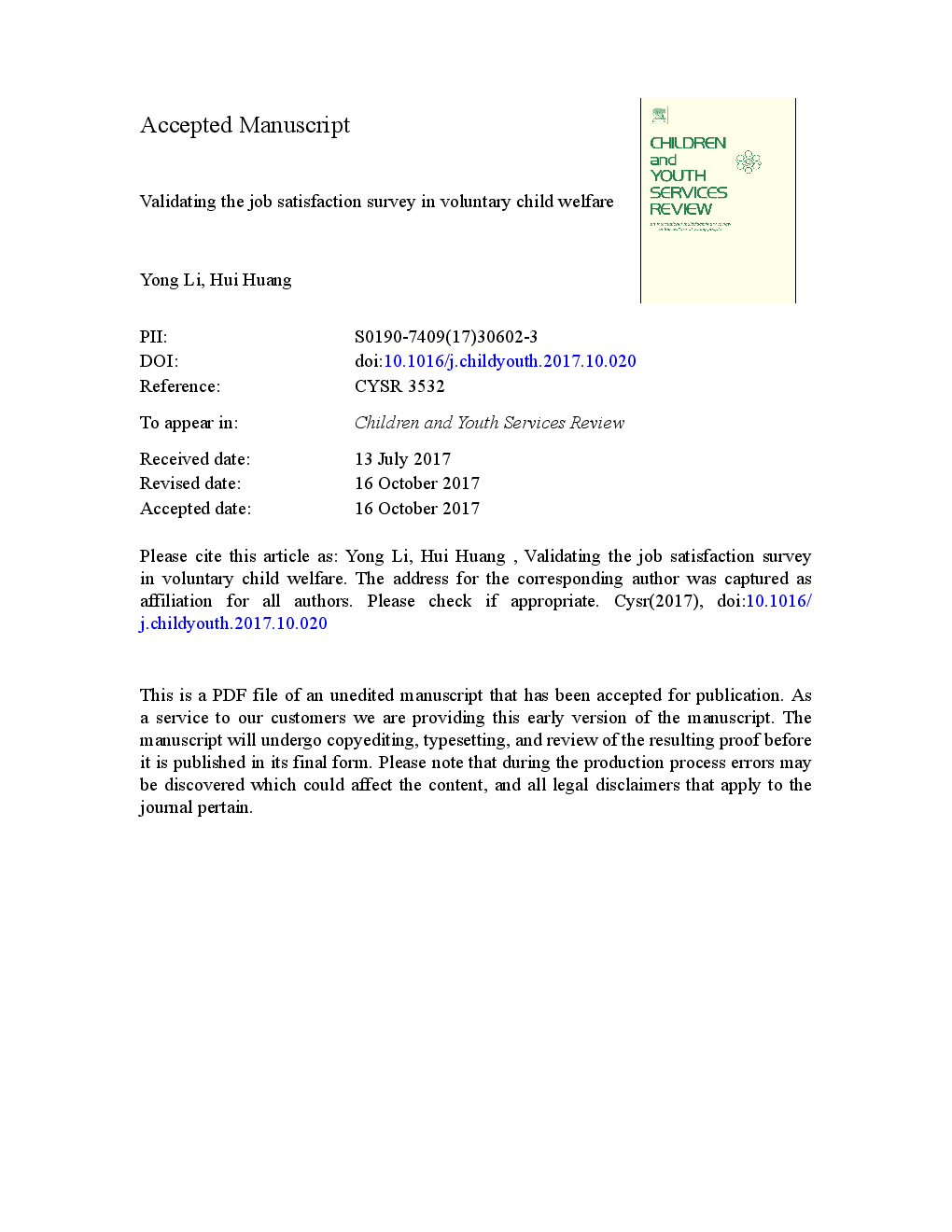ترجمه فارسی عنوان مقاله
اعتبار سنجی رضایت شغلی در رفاه فرزندان داوطلبانه
عنوان انگلیسی
Validating the Job Satisfaction Survey in voluntary child welfare
| کد مقاله | سال انتشار | تعداد صفحات مقاله انگلیسی |
|---|---|---|
| 90095 | 2017 | 35 صفحه PDF |
منبع

Publisher : Elsevier - Science Direct (الزویر - ساینس دایرکت)
Journal : Children and Youth Services Review, Volume 83, December 2017, Pages 1-8
ترجمه کلمات کلیدی
رضایت شغلی، رفاه کودکان داوطلبانه، قابلیت اطمینان، اعتبار، مطالعه روان سنجی،
کلمات کلیدی انگلیسی
Job satisfaction; Voluntary child welfare; Reliability; Validity; Psychometric study;

